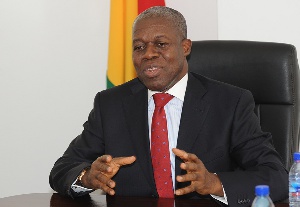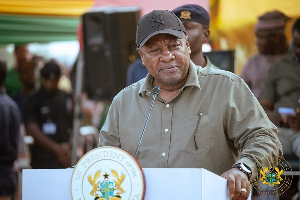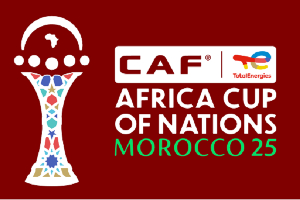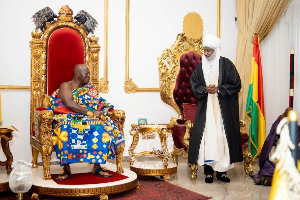Vice President Paa Kwesi Amissah-Arthur, says Ghana has made significant progress in the provision of social services but there is still much to be done.
He said while an estimated 66 per cent of the population has access to potable water only 33 per cent have access to good sanitation.
Mr Amissah-Arthur made the remarks in a speech read on his behalf, at a high level dialogue of African Ministers and Legislators on Mobilising Science, Technology and Innovation (STI) For Africa’s Sustainable Development.
The two-day dialogue was organised by the United Nations Educational, Scientific and Cultural Organisation (UNESCO) in collaboration with Ministry of Environment, Science, Technology and Innovation.
He said the indicators give cause for concern and must necessitate a drastic approach to development efforts with the emerging Sustainable Development Goals (SDGs).
Mr Amissah-Arthur said the major decision at the Rio+20 Conference was to formulate a development agenda for post 2015, which would sustain the gains made towards the Millennium Development Goals (MDGs) and to chart new paths to improve on what have been attained.
He said the universal agreement on the SDGs represent a major consensus on how in the coming decades the global focus should be on sustainability in the strive for economic growth, industrialisation and social advancement.
The Vice President said global efforts to concretise consensus on the SDGs involves an expansive multi-stakeholder discussions and consultations under the auspices of the United Nations.
He said high-level dialogue is important to extend the scope of consultations and consensus building in Africa not merely on the SDGs, but also on the approaches for achieving the goals.
He said the focus on Science, Technology and Innovation, is very crucial, for Africa, and the multi-stakeholder consultations are crucial for ensuring that the 17 SDGs are elaborated in a manner that captures the concerns of our peoples and provide for creating the enabling conditions in the international arena for the achievement of the goals.
“Already the discussions of the SDGs are connecting with the real issues of interest to us and building on the gains made over the last couple of years,” he said.
Mr Mahama Ayariga, Minister of Environment, Science, Technology and Innovation, said STI hold great potential as tools for integration in sustainable development which could be used to promote health, increase productivity, improve the efficiency of resource use, and reduce negative human impacts on the environment.
He said the Ministry is mandated to ensure the achievement of sustainable economic growth through the application of STI and spearhead integration in the development of post 2015 SDGs.
He said most African countries are unable to achieve all the targets set for the eight MDGs, hence the need for going forward to set targets for SDGs based on national indicators.
The Minister noted that STI indicators have become an essential ingredient in research on the modes of operation of the science-technology-innovation sub-system and its relationship with the wider social system.
Professor Flavia Schlegel, UNESCO Director General, Natural Science Sector said the agenda of MDGs would closed while new post 2015 agenda, which would be focused on transformation would open.
He said technologies cannot be made without science based focus and that science and technology are key in achieving all MDGs.
Prof Jane Naana Opoku-Agyemang, Minister of Education and Chairperson of the ceremony said language plays an important role in science and technology and expressed the hope that women in science, especially the next generation, would be able solve problems with science.
General News of Monday, 13 July 2015
Source: GNA













